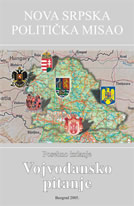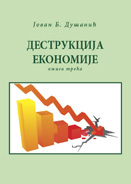| NSPM in English | |||
Iran’s Counterrevolution |
 |
 |
 |
| субота, 09. јануар 2010. | |
|
(The National Interest, 07.01.2010)
These memories were stirred by a splendidly provocative piece in the New York Times by Flynt Leverett and Hillary Mann Leverett on Iran. The Leveretts first came to prominence by attacking the Bush administration for bungling relations, early on, with Tehran, alleging that its ideological preconceptions blinded it to the chance to treat with it. Now they are on the attack against the Obama administration. Too much, they say, is being made of the current ructions in Iran. And so, in the Times, they seek to pour cold water on the notion that the Iranian revolution is really going anywhere, or that it is, in fact, even worthy of the title. Neocons, eager for a pretext to bomb Tehran, are seizing upon the upheaval to argue for more regime change in the Middle East. The Obama administration, trapped by its failure to reach an agreement early on with Tehran, is using the events as a convenient pretext to adopt a meaningless wait-and-see attitude. Nor do the Leveretts have much faith in the demonstrations in Iran. They pooh-pooh the notion that it amounts to much more than a farrago of malcontents who really have no popular following: “one thing we do know is that much of Iranian society was upset by the protesters using a sacred day to make a political statement.” The Leveretts end by calling upon Obama to follow in Richard Nixon’s footsteps and reach out to Iran, just as Nixon established relations with communist China. But that, of course, is easier said than done. It is certainly possible that Obama has created a backchannel to Iran—or has attempted to create one and came up empty. But imagine the uproar that would ensue were Obama to be shown secretly negotiating with the Iranians. It would be red meat for his conservative opposition. Recall the uproar that ensued when George H. W. Bush set about smoothing relations with China in the aftermath of Tiananmen Square—the picture of Brent Scowcroft toasting the Chinese leadership did not go over well in America, even if it was the prudent, realist course to take. So the Leveretts are rather hard on Obama, scanting the domestic political context in which he has to operate. It’s also the case that it hasn’t proven that easy to reach some kind of modus vivendi with Iran. Obama’s overtures have been rebuffed, at least publicly. Given the turmoil in Tehran right now, it would probably be political suicide for any member of the leadership to espouse opening up to the West, sort of like a member of the Obama administration calling for negotiating with al-Qaeda. In any case, it wasn’t until the Cultural Revolution had begun to wind down that Nixon was able to meet with Mao and it looks like Iran, should the leadership prevail, will be in for a new round of cultural and moral vigilance. Another problem with the Leveretts’ analysis may be that it takes too static a view of Iran. The English historian Lord Macaulay once observed that during revolutions “men live fast.” Iran is living fast these days. History accelerates during revolutionary periods and what was unthinkable a day ago may become commonplace the next. The more pressure the Tehran leadership exerts on the opposition, the more the opposition has begun to oppose it. This radicalization process shows no signs of slowing. Quite the contrary. Thus Robin Wright, who has also followed Iran closely for many years and is anything but a neocon, takes a somewhat different view than the Leveretts in the Los Angeles Times. In her analysis, “Iran’s so-called green movement is not yet a counterrevolution, but recent developments make clear it is heading in that direction. Seven months after the uprising began, an opposition manifesto is finally taking shape, and its sweeping demands would change the face of Iran. Three bold statements calling for reform have been issued since Friday, one by opposition presidential candidate Mir-Hossein Mousavi, one by a group of exiled religious intellectuals and the third by university professors. Taken together, they suggest that the movement will not settle for anything short of radical change.” Could Iran become the next country to oust its despotic leadership? The Leveretts say no. Likening events in Iran to the fall of the Berlin Wall, they believe, is “fanciful.” Perhaps they are right. Their essay is strongest in sounding cautionary notes about change in Iran, but weakest, I think, in attacking Obama for engaging in “half-hearted diplomacy.” But even bearing in mind the warning of the Leveretts, it might be useful to remember that sometimes the fanciful does occur. Should the regime misplay its hand in coming months, a figure in the military might launch a coup from above. Or a popular counter-revolution, which keeps the Islamic republic in name only, might sweep out the current leadership. This fight looks as though it will be waged to the finish. Whether a new regime is much more conciliatory toward the West, let alone to negotiate its nuclear programs, is another matter entirely. But for now, it would be wholly premature to dismiss peremptorily the possibility of radical change. Instead of fecklessly spurning a golden opportunity to establish ties with Iran, President Obama is pursuing the right approach. Jacob Heilbrunn is a senior editor at The National Interest |
Од истог аутора
Остали чланци у рубрици
- Playing With Fire in Ukraine
- Kosovo as a res extra commercium and the alchemy of colonization
- The Balkans XX years after NATO aggression: the case of the Republic of Srpska – past, present and future
- Из архиве - Remarks Before the Foreign Affairs Committee of the European Parliament
- Dysfunction in the Balkans - Can the Post-Yugoslav Settlement Survive?
- Serbia’s latest would-be savior is a modernizer, a strongman - or both
- Why the Ukraine Crisis Is the West’s Fault
- The Ghosts of World War I Circle over Ukraine
- Nato's action plan in Ukraine is right out of Dr Strangelove
- Why Yanukovych Said No to Europe

.jpg)








 Remember East Germany, that tiny, squalid rump state that penned in its citizens with machine guns, mine fields and was a member in good standing of the Warsaw Pact? Twenty-one years ago, its leadership threw in the towel. The wall crumbled in November 1989; Germany itself was reunified by October 1990. But numerous commentators and German experts declared it could never happen. The Soviet Union would let the tanks roll. The opposition movement in East Germany didn’t really exist beyond a few disgruntled novelists and musicians. And so on.
Remember East Germany, that tiny, squalid rump state that penned in its citizens with machine guns, mine fields and was a member in good standing of the Warsaw Pact? Twenty-one years ago, its leadership threw in the towel. The wall crumbled in November 1989; Germany itself was reunified by October 1990. But numerous commentators and German experts declared it could never happen. The Soviet Union would let the tanks roll. The opposition movement in East Germany didn’t really exist beyond a few disgruntled novelists and musicians. And so on.











